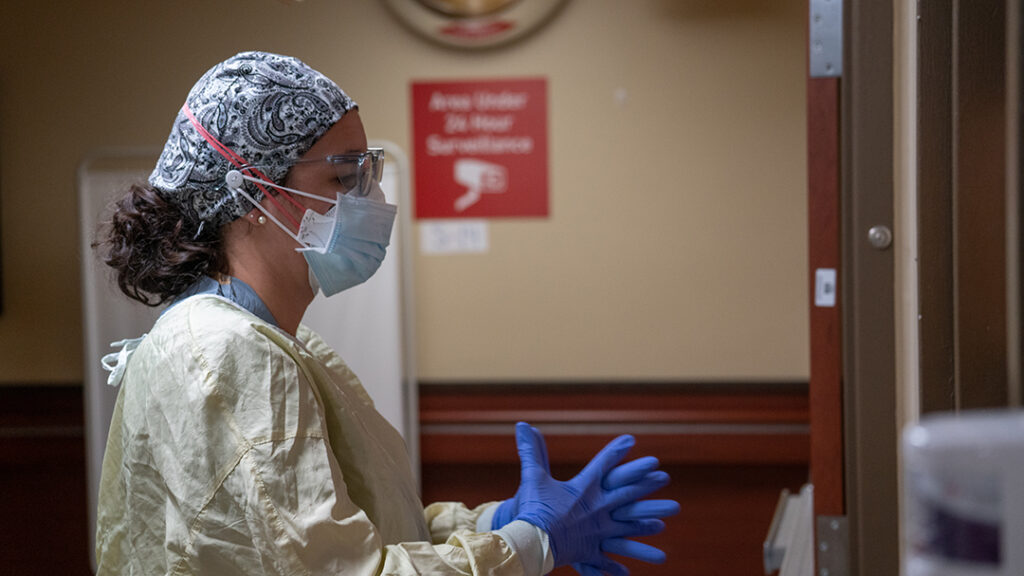THE ASSOCIATED PRESS
More than 1,000 U.S. military personnel were deployed to hospitals nationwide in mid-January 2022 to assist hospitals struggling with staff shortages because of soaring COVID-19 cases.
Many hospitals are facing staffing crunches because infected workers stayed home, and COVID-19 cases rose as the highly contagious omicron variant took over the country. U.S. President Joe Biden announced that six military medical teams were deployed to Michigan, New Jersey, New Mexico, New York, Ohio and Rhode Island. Those teams will support Henry Ford Hospital just outside Detroit, University Hospital in Newark, the University of New Mexico hospital in Albuquerque, Coney Island Hospital in Brooklyn, Cleveland Clinic in Ohio and Rhode Island Hospital in Providence.
The deployment of the military personnel is in addition to the more than 800 who have been helping civilian hospitals since Thanksgiving, and the more than 14,000 National Guard members who have been assisting with vaccinations, testing and caring for patients with the support of the federal government. (Pictured: U.S. Army Capt. Lauren Snodgrass, a registered nurse assigned to 32nd Hospital Center at Joint Base San Antonio-Fort Sam Houston, puts on personal protective equipment prior to entering a COVID-19 patient’s room at a Detroit-area hospital. Snodgrass is a member of a team deployed to augment the hospital’s staff.)
For the staff at Coney Island Hospital, the assistance couldn’t come soon enough. “I think, especially for the past two years, there’s burnout,” nurse Ashley David told a CBS affiliate. Davis was visiting her own father in the hospital.
She said working nonstop through the pandemic has been exhausting. “We need mental help,” she said. “We need emotional help.”
Leaders at the Henry Ford Wyandotte Hospital in Michigan said COVID-19 cases in their hospital continue to rise and that many staff members are testing positive, NPR reported. The hospital was being overwhelmed by the pandemic — even with the military’s help.
“Even our care teams know it [the military surge] doesn’t begin to solve problems,” Bob Riney, chief operating officer for Henry Ford Health System, said in a news briefing. “But it solves some. And that is not only a real benefit, but it’s also a producer of hope. And that’s important.”
IMAGE CREDIT: SGT. 1ST CLASS TIMOTHY HUGHES/U.S. ARMY

